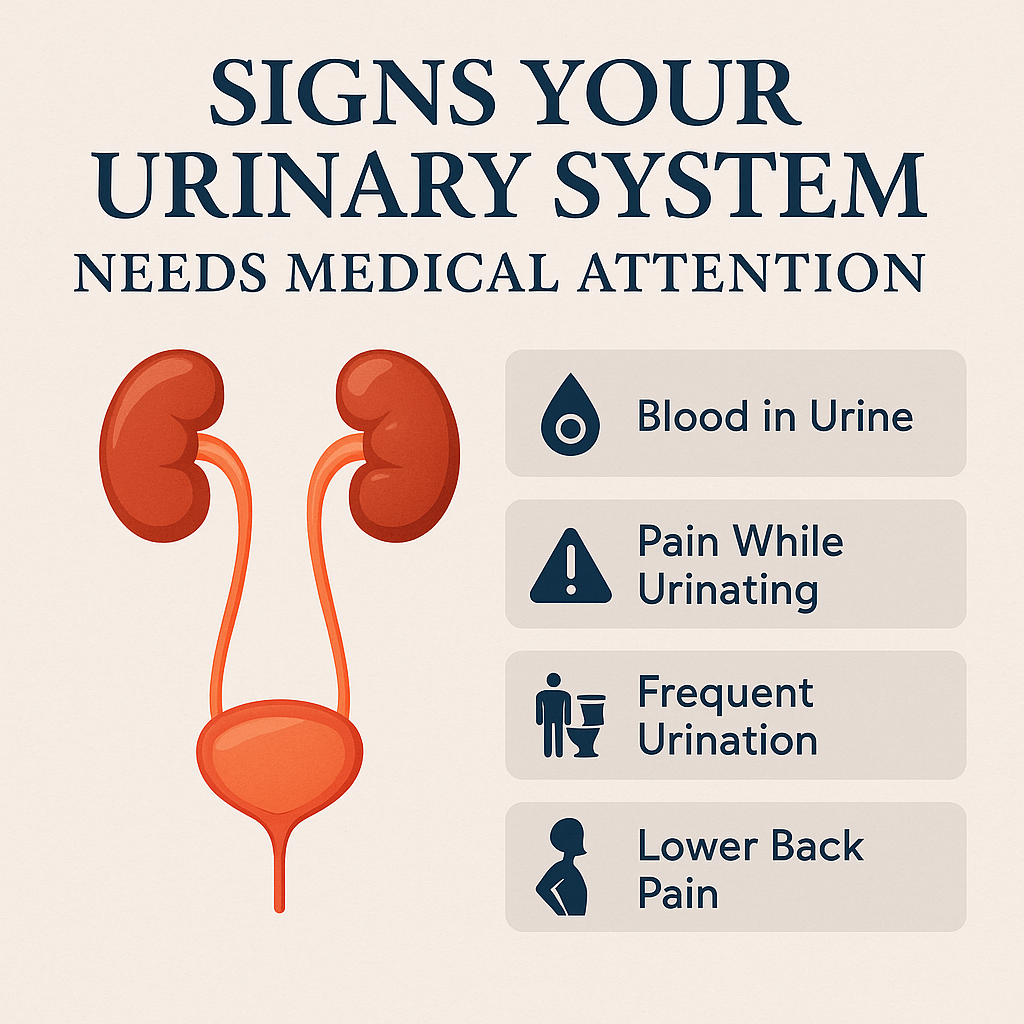Your urinary system plays a crucial role in removing waste and excess fluids from your body, helping to maintain a healthy balance of electrolytes. When this system isn’t functioning properly, it can impact your quality of life and potentially lead to serious health complications.
While occasional changes in urinary habits might not always be a cause for concern, there are certain warning signs that you should never ignore. Here’s a guide to help you recognize when your urinary system may be sending out distress signals.
1. Blood in Urine (Hematuria)
Seeing pink, red, or cola-colored urine can be alarming—and for good reason. This could indicate:
- Urinary tract infections (UTIs)
- Kidney stones
- Bladder or kidney infections
- Prostate conditions (in men)
- In rare cases, urinary cancers
Even if the bleeding is painless, you should consult a urologist immediately for proper diagnosis.
2. Pain or Burning During Urination
A stinging or burning sensation while urinating is often a classic sign of:
- Urinary tract infection (UTI)
- Bladder inflammation (cystitis)
- Sexually transmitted infections (STIs)
- Urethritis (inflammation of the urethra)
It’s important to treat infections early to avoid complications like kidney damage.
3. Frequent Urination or Urgency
Are you running to the bathroom more often than usual, especially at night? Frequent urination may be linked to:
- UTIs
- Overactive bladder
- Diabetes
- Enlarged prostate (BPH)
- Bladder infections or inflammation
If you also experience a strong urge to urinate but little comes out, it’s a sign your bladder may not be emptying properly.
4. Lower Back or Side Pain
Persistent pain in your lower back, side, or groin can be associated with:
- Kidney stones
- Kidney infection (pyelonephritis)
- Obstruction in the urinary tract
- Bladder disorders
This type of pain can range from dull aches to severe cramps, and should always be evaluated by a healthcare provider.
5. Cloudy or Foul-Smelling Urine
Unusual urine color or odor could mean:
- Infection
- Dehydration
- Liver or kidney problems
- Dietary factors (e.g., asparagus, supplements)
Cloudy urine, especially when paired with other symptoms like burning or urgency, should prompt a medical visit.
6. Urinary Incontinence or Difficulty Urinating
Struggling to hold urine or experiencing dribbling can indicate:
- Weak pelvic floor muscles
- Enlarged prostate
- Nerve-related disorders
- Urethral stricture or blockage
On the other end of the spectrum, difficulty starting urination or a weak stream can also point to underlying issues needing evaluation.
When to See a Urologist
If you’re experiencing any of these symptoms, it’s time to speak with a healthcare provider—preferably a urologist, a specialist in urinary tract health. Early diagnosis can prevent serious complications and lead to more effective treatment.

